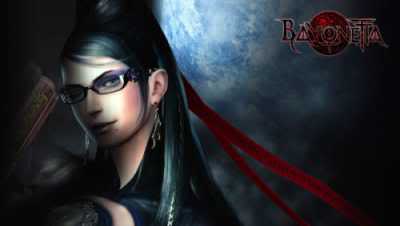
Editor’s note: After spending a good portion of the weekend playing the spectacular Bayonetta, I’d submit that Japan is still very much important to gaming. As I see it, the problem isn’t so much a divide in philosophy between East and West. Instead, it’s a divide in cash and resources between East and West — a problem exacerbated by the current economy. Unless you’re someone like Kamiya or Hideo Kojima, you’re probably going to have a hard time getting the necessary resources to do your project justice. Yes, Western developers face similar challenges, but the divide between the haves and the have-nots seems far greater in Japan. -Fitch
If you came of age as a gamer in the ’80s and ’90s, you couldn’t have imagined your hobby without Japanese games playing a central role. I was born in 1985, so my gaming really started with the NES, Sega Genesis, and Super NES. I loved Mario, Sonic, and Donkey Kong Country, and I continued to follow gaming through the days of the Nintendo 64. But as the PS2/Xbox/Dreamcast/GameCube era kicked off, I was already in high school, so gaming took a backseat to life. But in April 2006, a coworker raved about his new Xbox 360, and I got intrigued enough to buy my own system later that week. The Xbox 360 had me hooked: The awesome Achievement system, the fact that I could talk to my friends while playing games, and the HD visuals combined to turn me into a hardcore gamer. I’d imagine a lot of Western consumers got hooked just the same way, and I think this is part of the reason for the seismic shift from East to West the past decade.
It’s a shame most Japanese consumers aren’t part of this new era in gaming. In fact, from my perspective, the Japanese seem to have a clear dislike for Western games. Square Enix president and CEO Yoichi Wada has gone so far as to say that Japanese retailers are “prejudiced” against Western games. Imagine walking into GameStop and asking the cashier for Bayonetta and hearing, “Really? You know, that game’s from Japan. You should try Darksiders;
it’s American.” Imagine Japanese games segregated from the rest of the
store, branded as “other.” That’s how Wada describes the market for
Western games in Japan.

I can understand national pride to an extent, but can Japanese gamers honestly sit there and say they don’t enjoy Western titles? Can they really sit there and say that something like Uncharted isn’t worth playing? Now, I understand that some Western games have modest success in Japan; Halo 3, for example, hit No. 1 for a week — barely beating out Pokemon Mystery Dungeon: Explorers of Time by 4,000 units. But aberrations like that are the exception, not the rule.
And the rule on this side of the Pacific is that, with very few exceptions, we’re playing Western games. Aside from Bayonetta and Final Fantasy 13, this year’s set to be dominated by Western titles from every conceivable genre: Mass Effect 2, God of War 3, Alan Wake, Heavy Rain, Splinter Cell: Conviction, Crackdown 2, Fable 3, Halo: Reach, and Fallout: New Vegas. With all that to look forward to, are we really going to notice something like Gran Turismo 5? Japanese publishers are even outsourcing development to the West for games like Dead Rising 2 and Castlevania: Lords of Shadow.
So are Japanese games a thing of the past? I wouldn’t quite go that far. As long as Nintendo’s going strong, we’ll always have a platform for Japanese games themselves. But the Japanese influence on gaming — so strong the past 20 years — appears to be over. The past decade signaled a shift from East to West that doesn’t show any signs of changing; games are definitely taking a Western turn, and with high-powered American companies like Microsoft and Apple investing more and more resources into gaming, I’m curious to see how the landscape will look in 2020.

